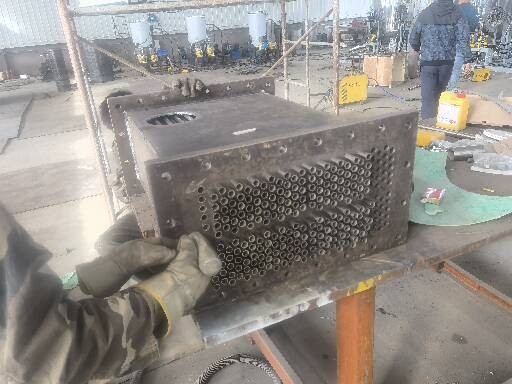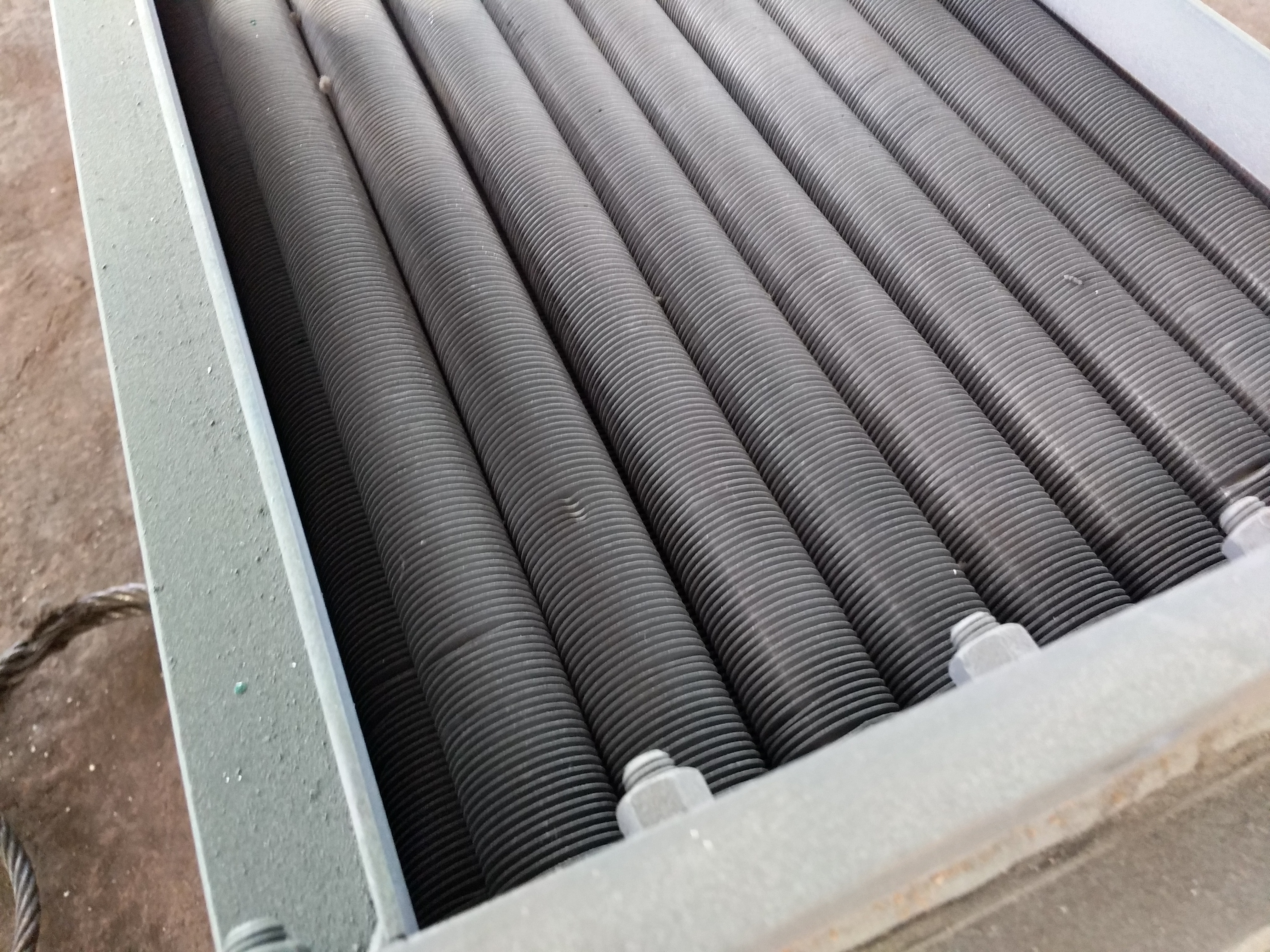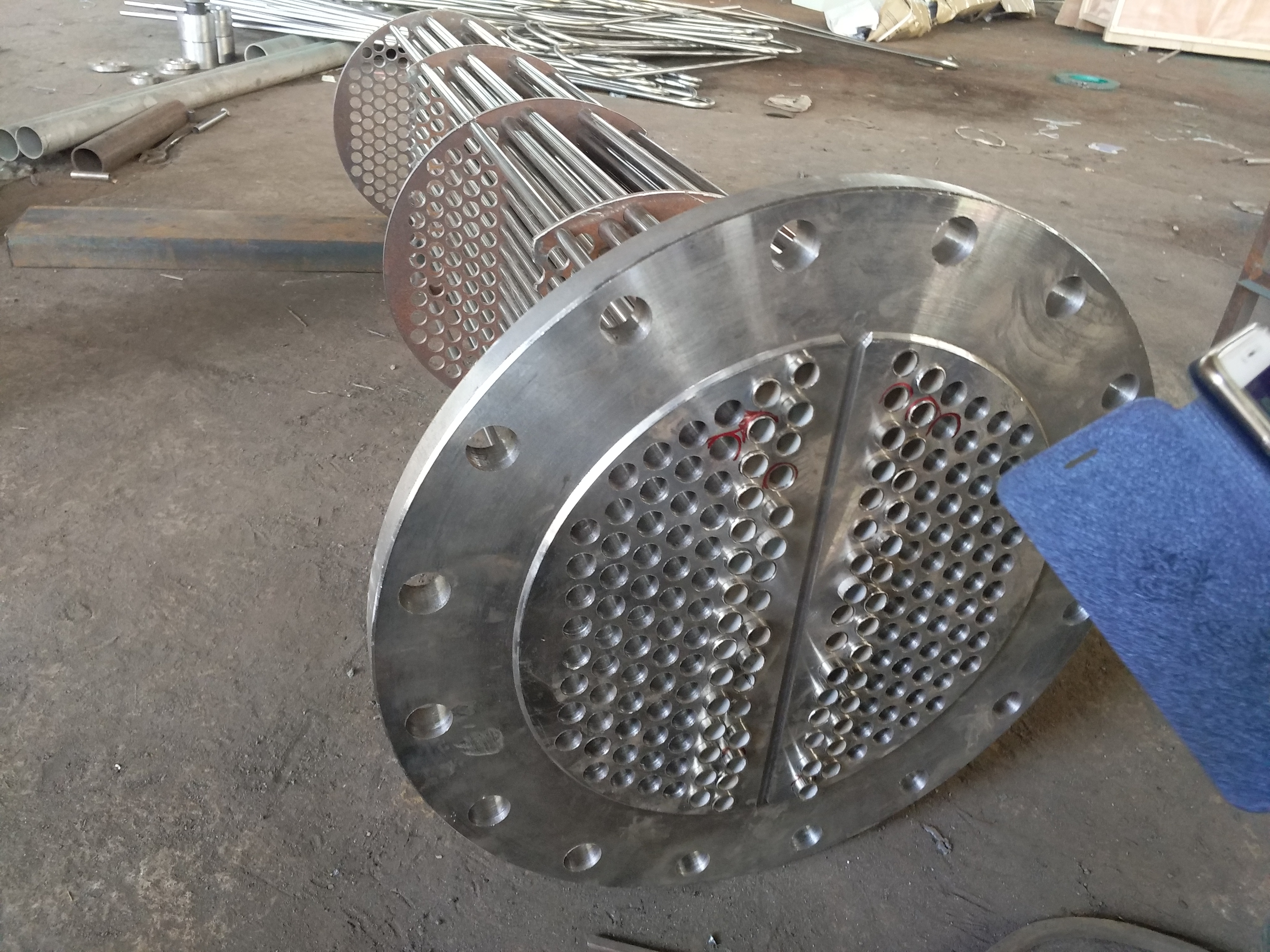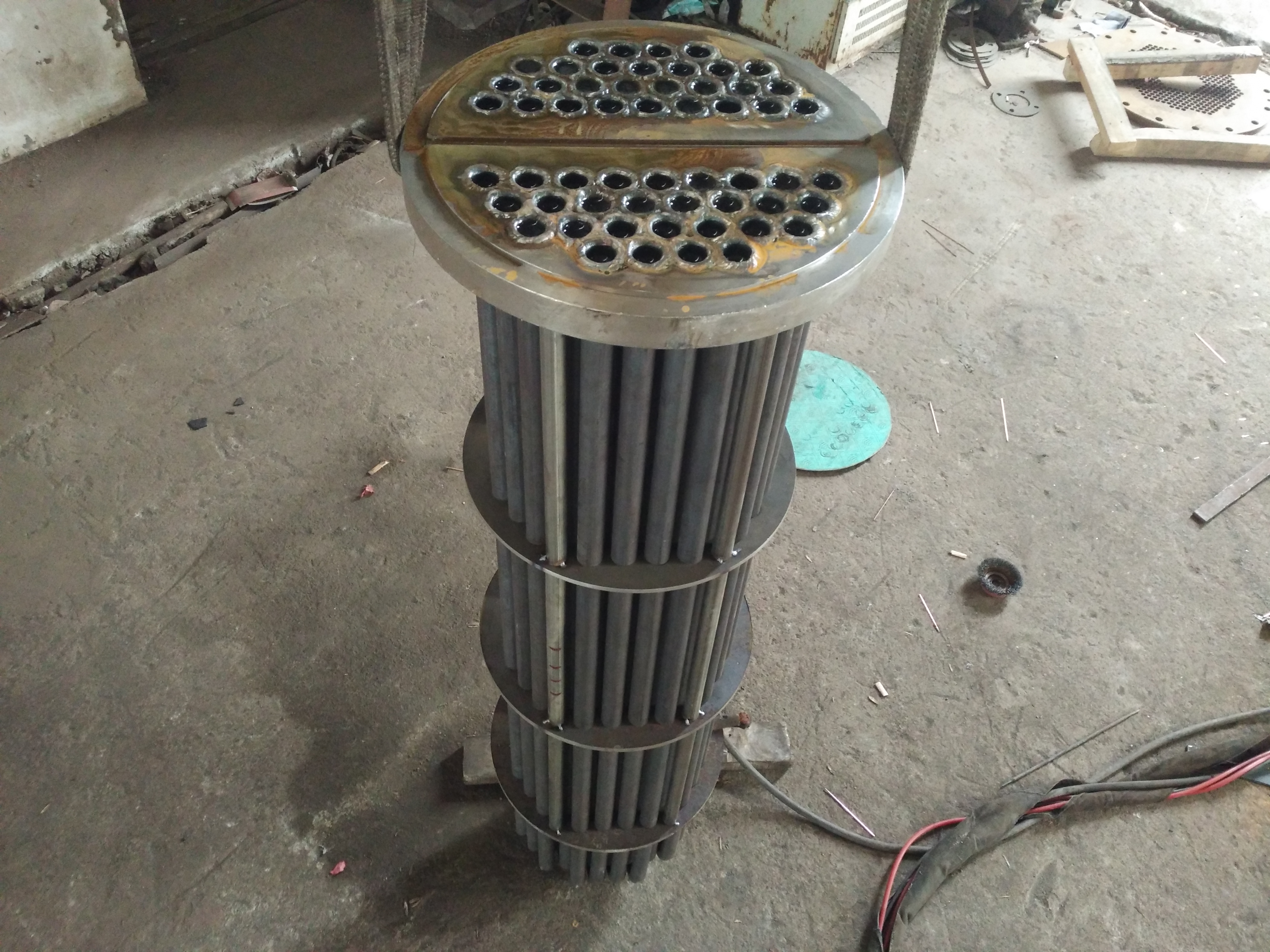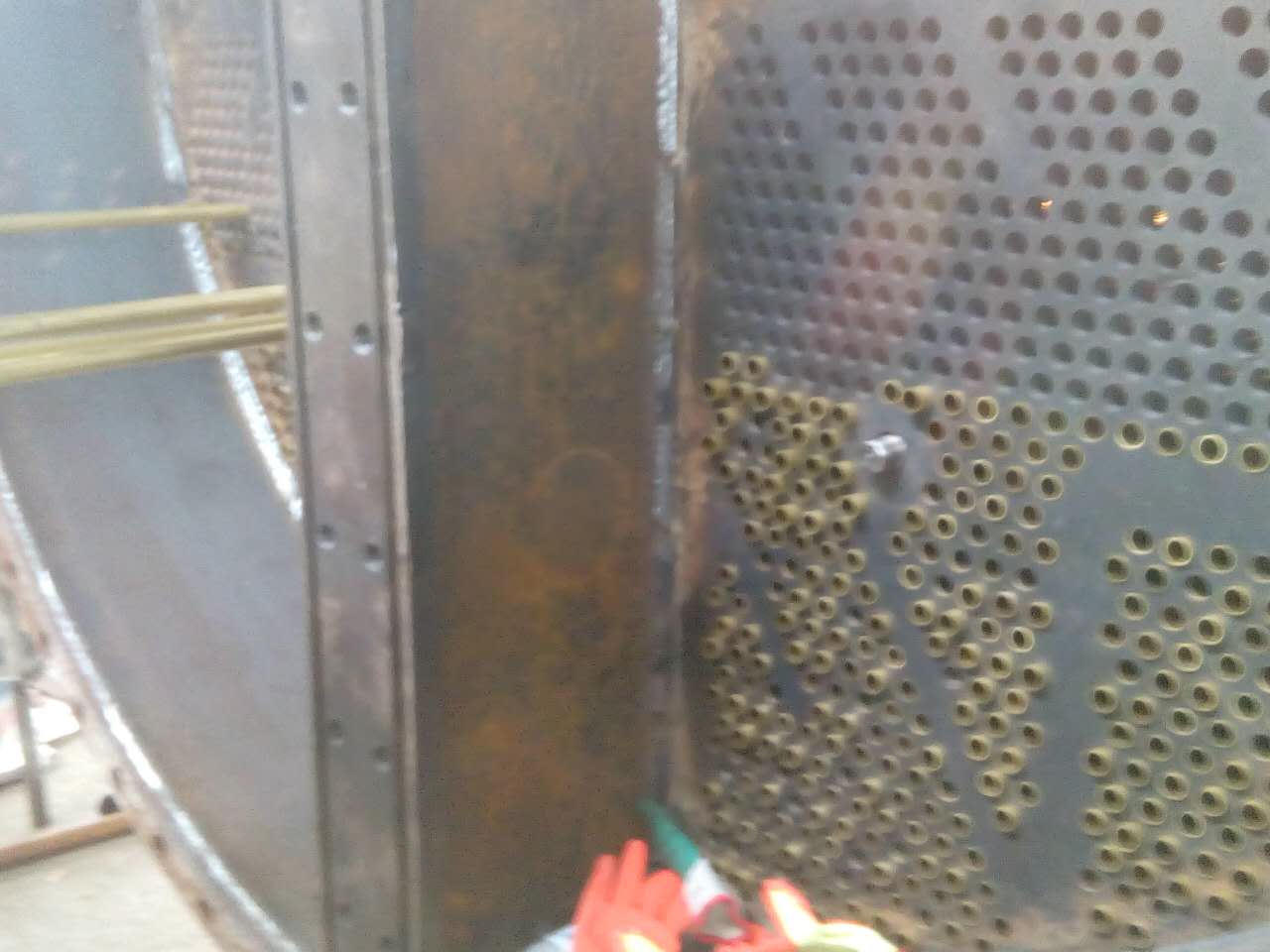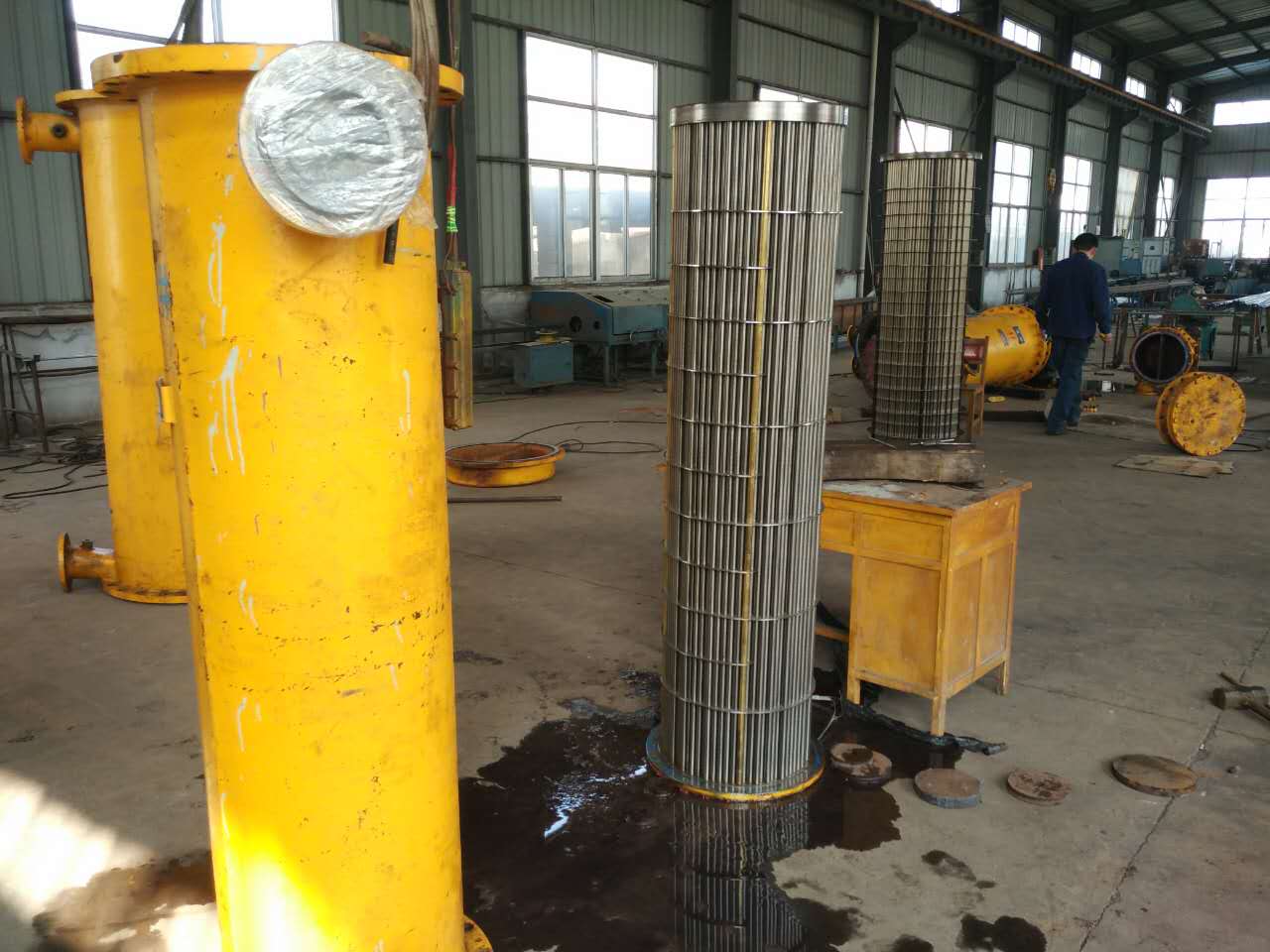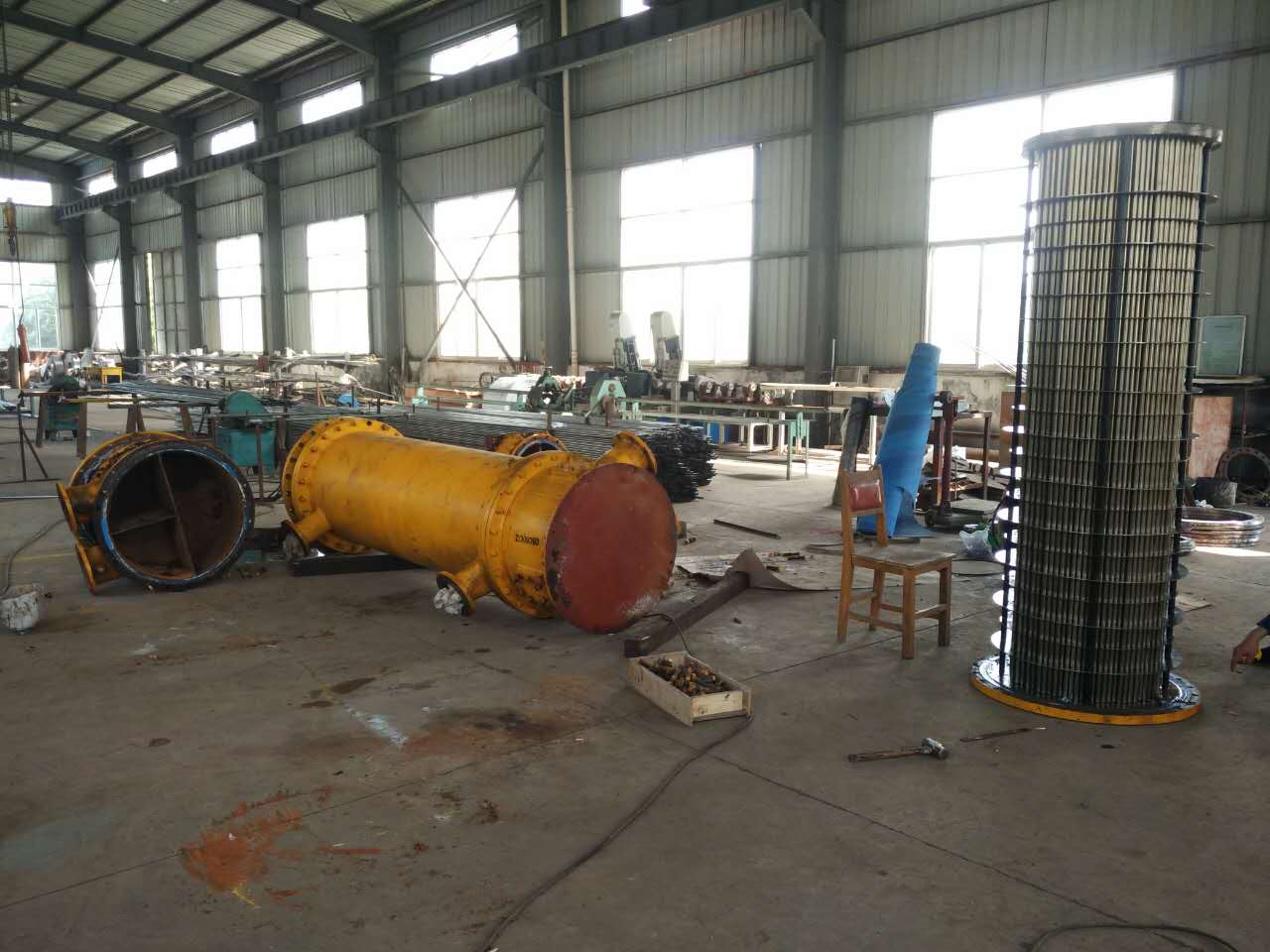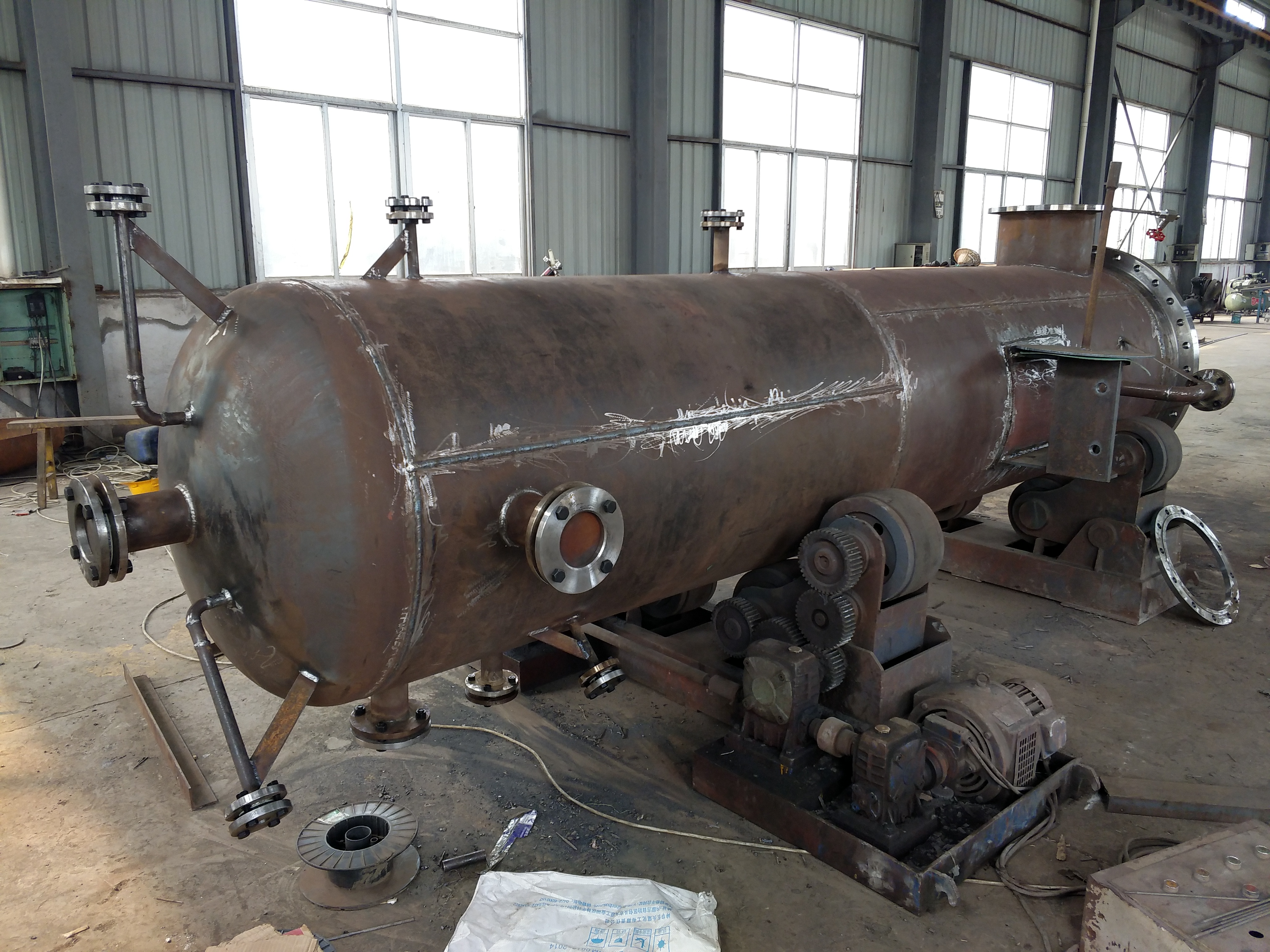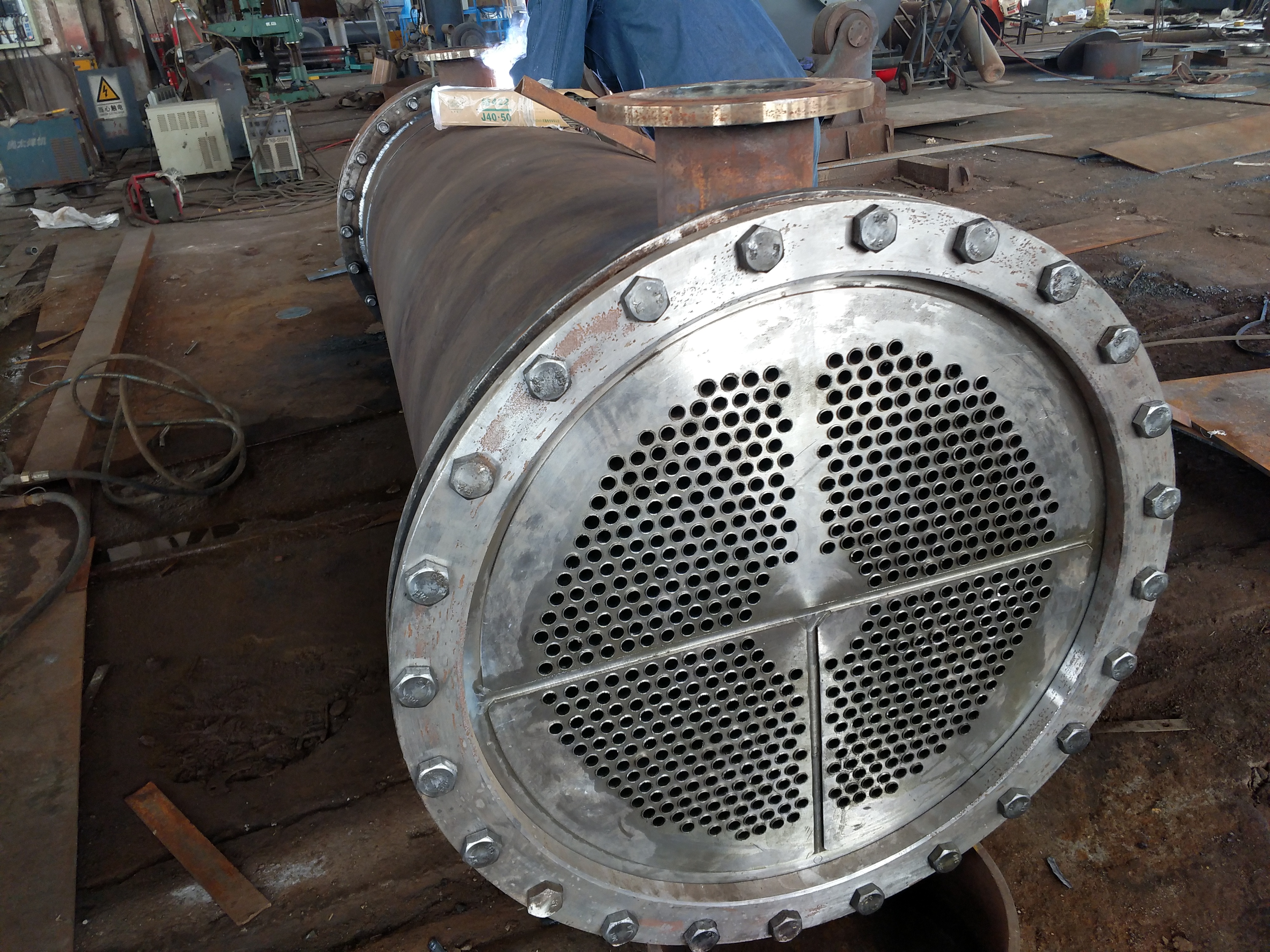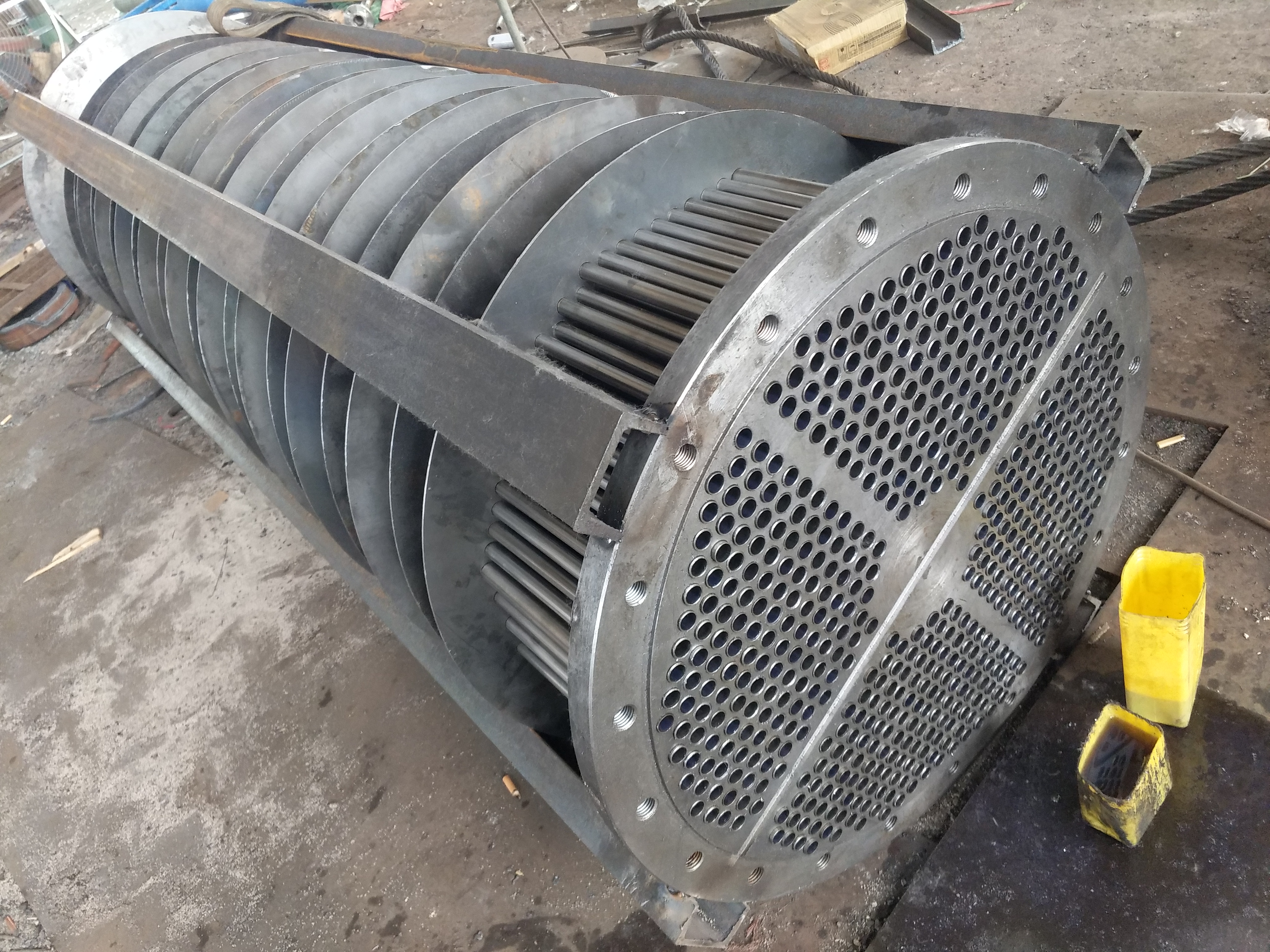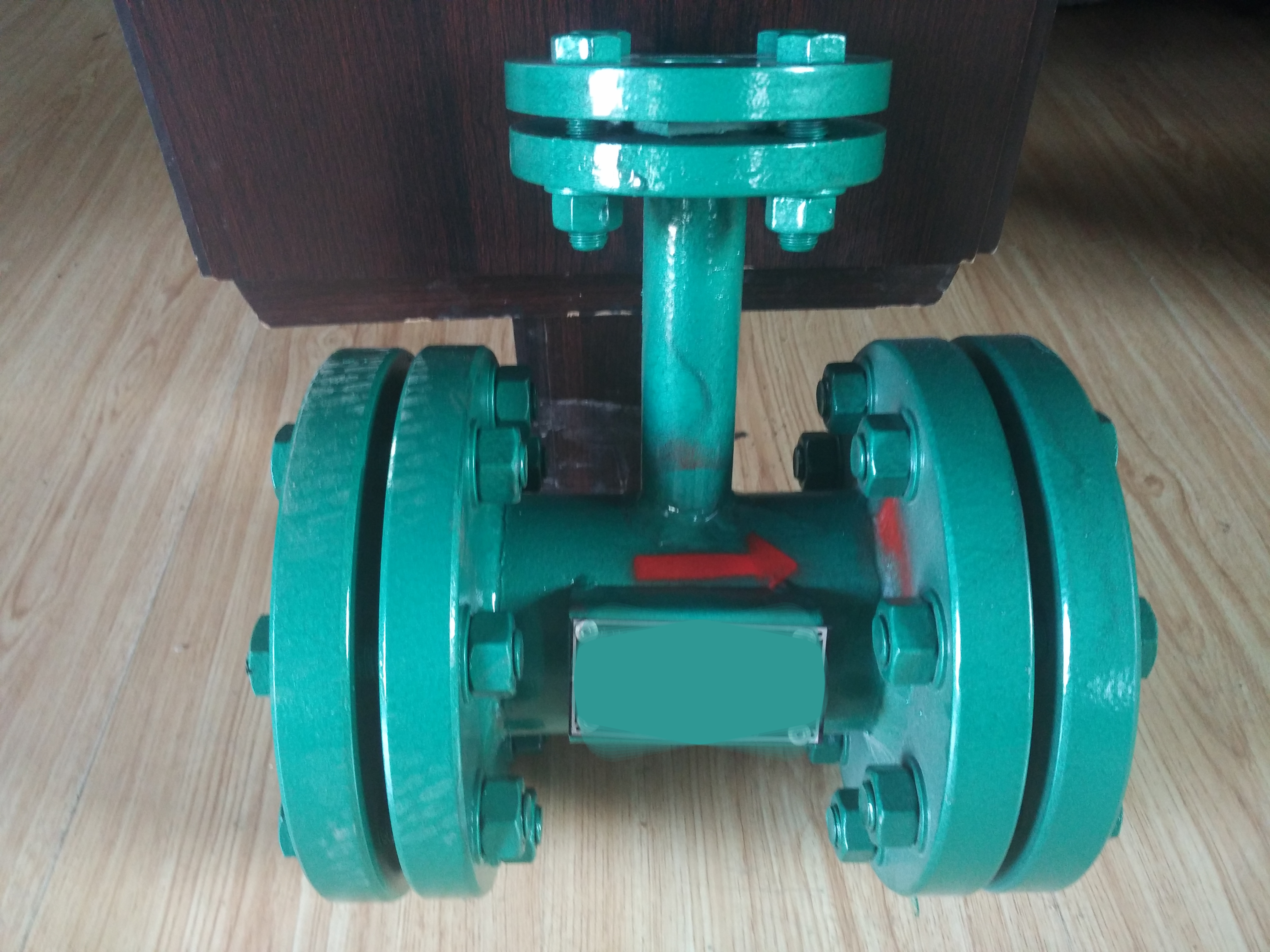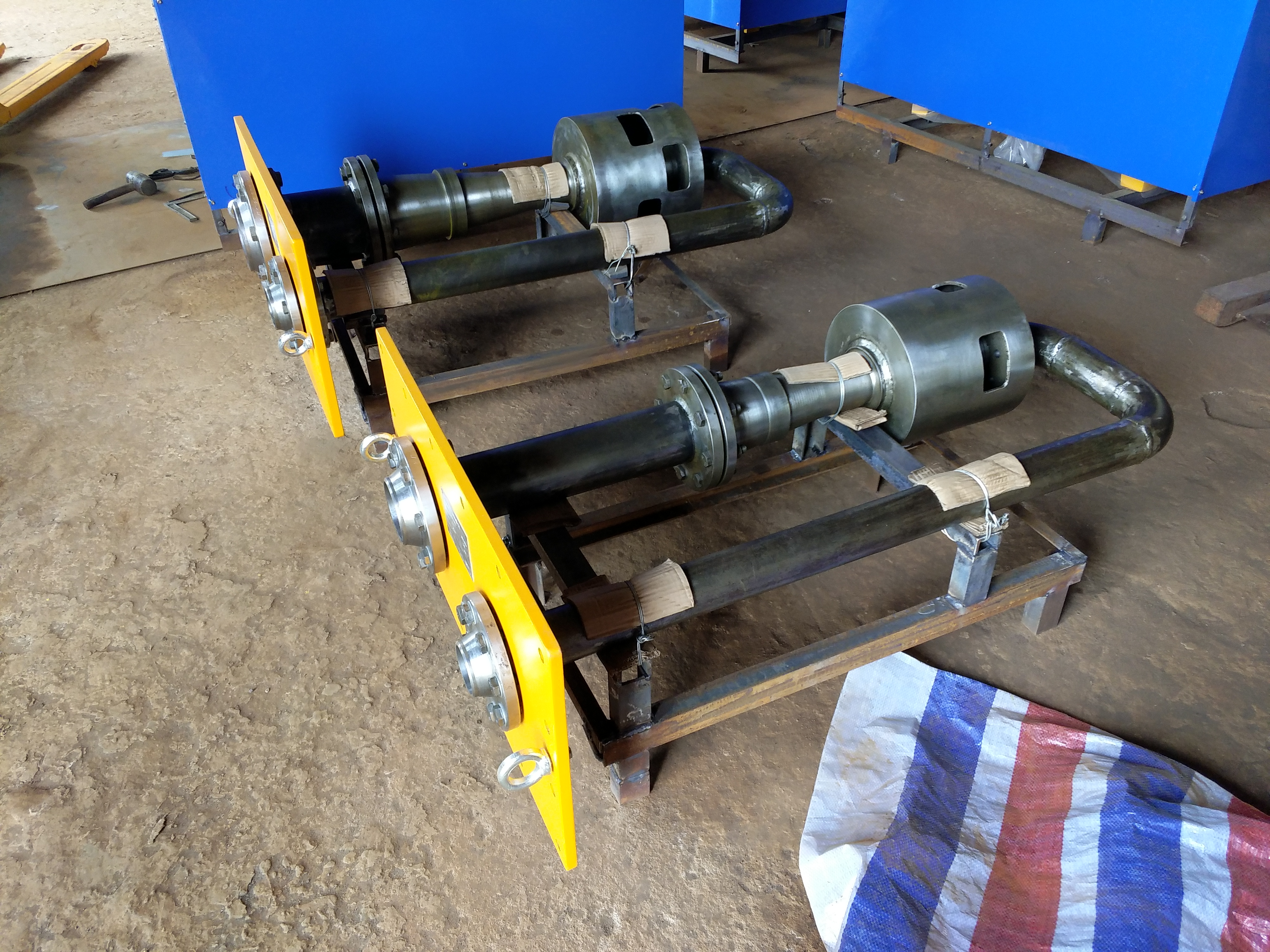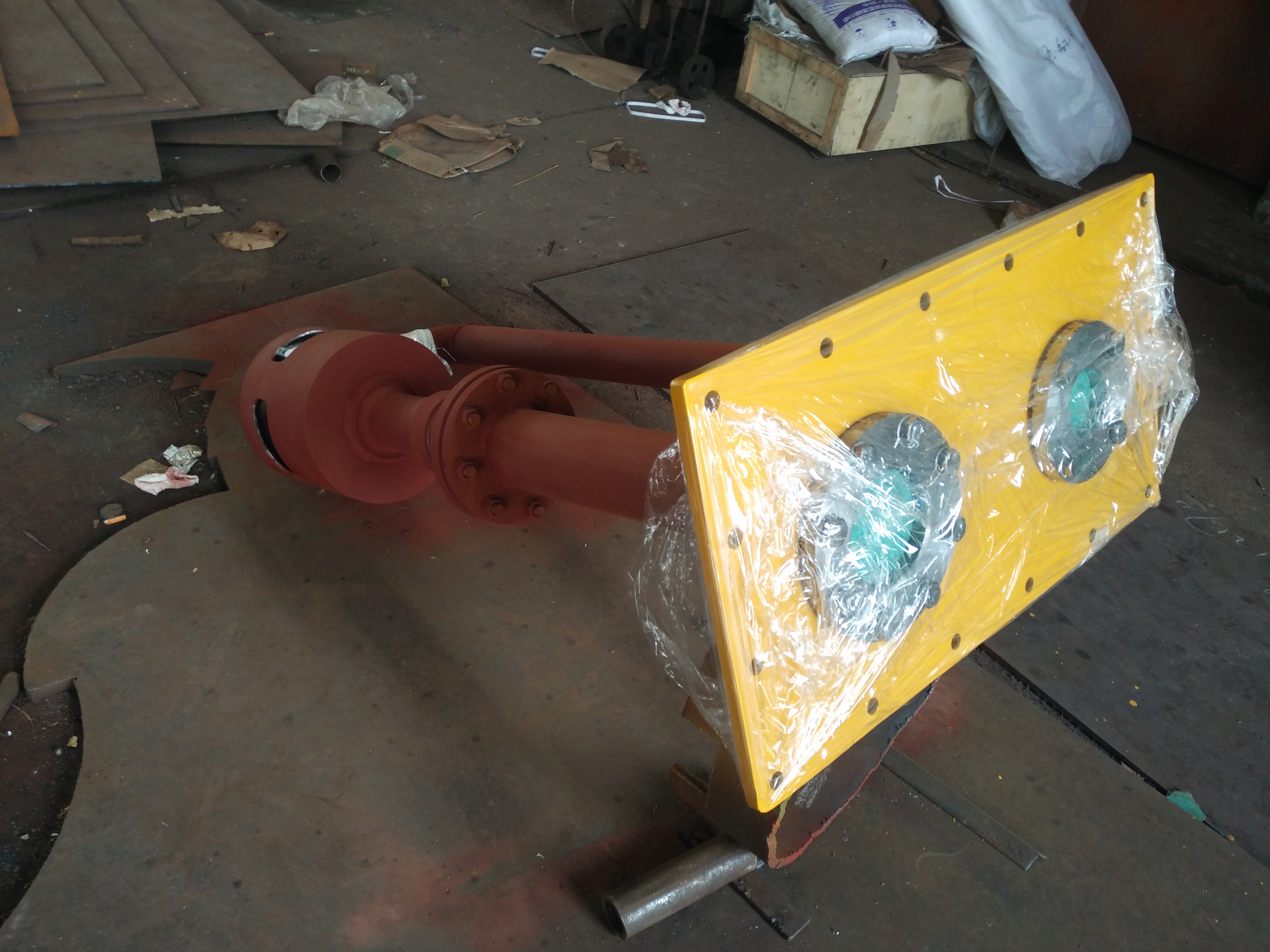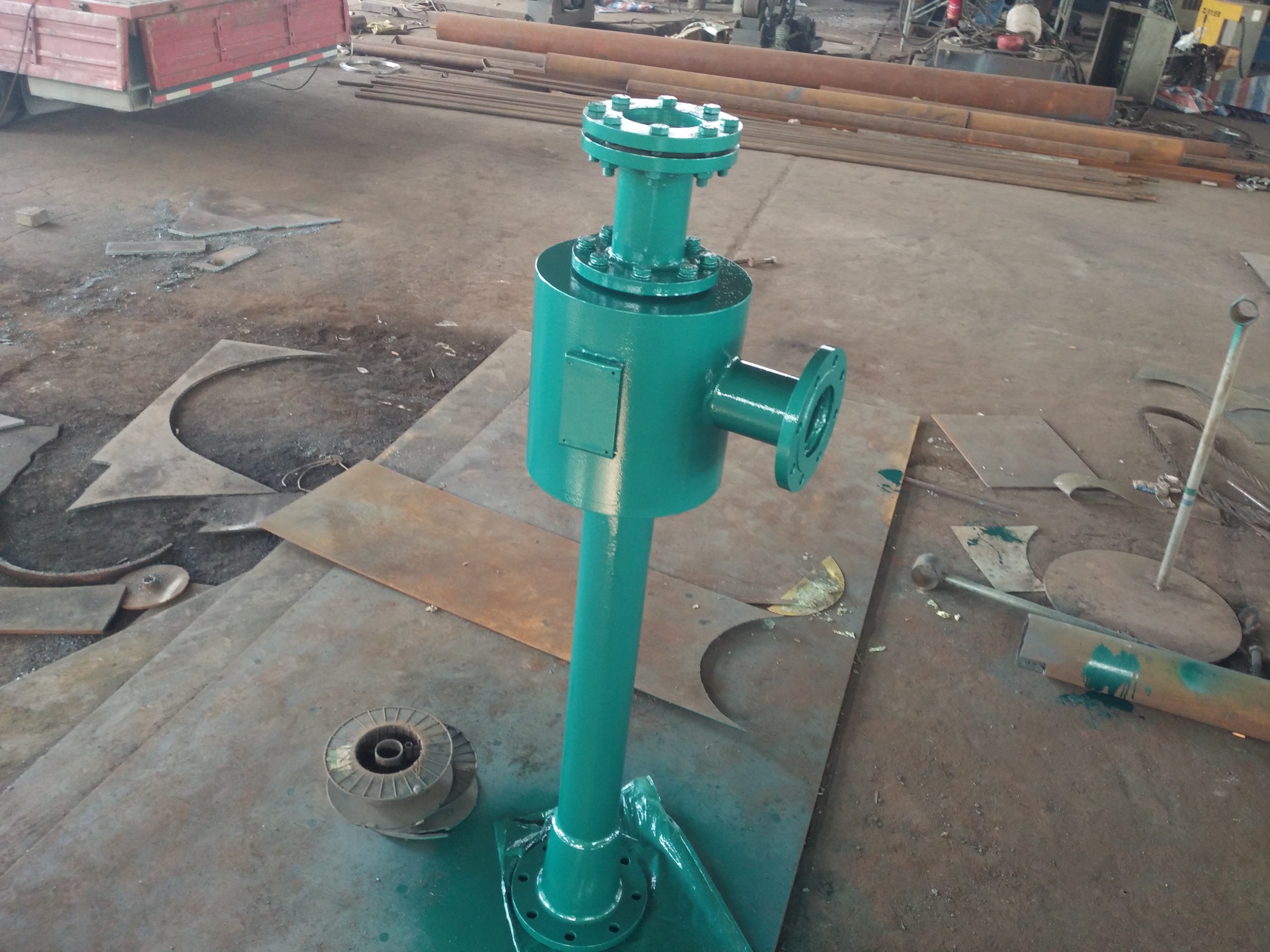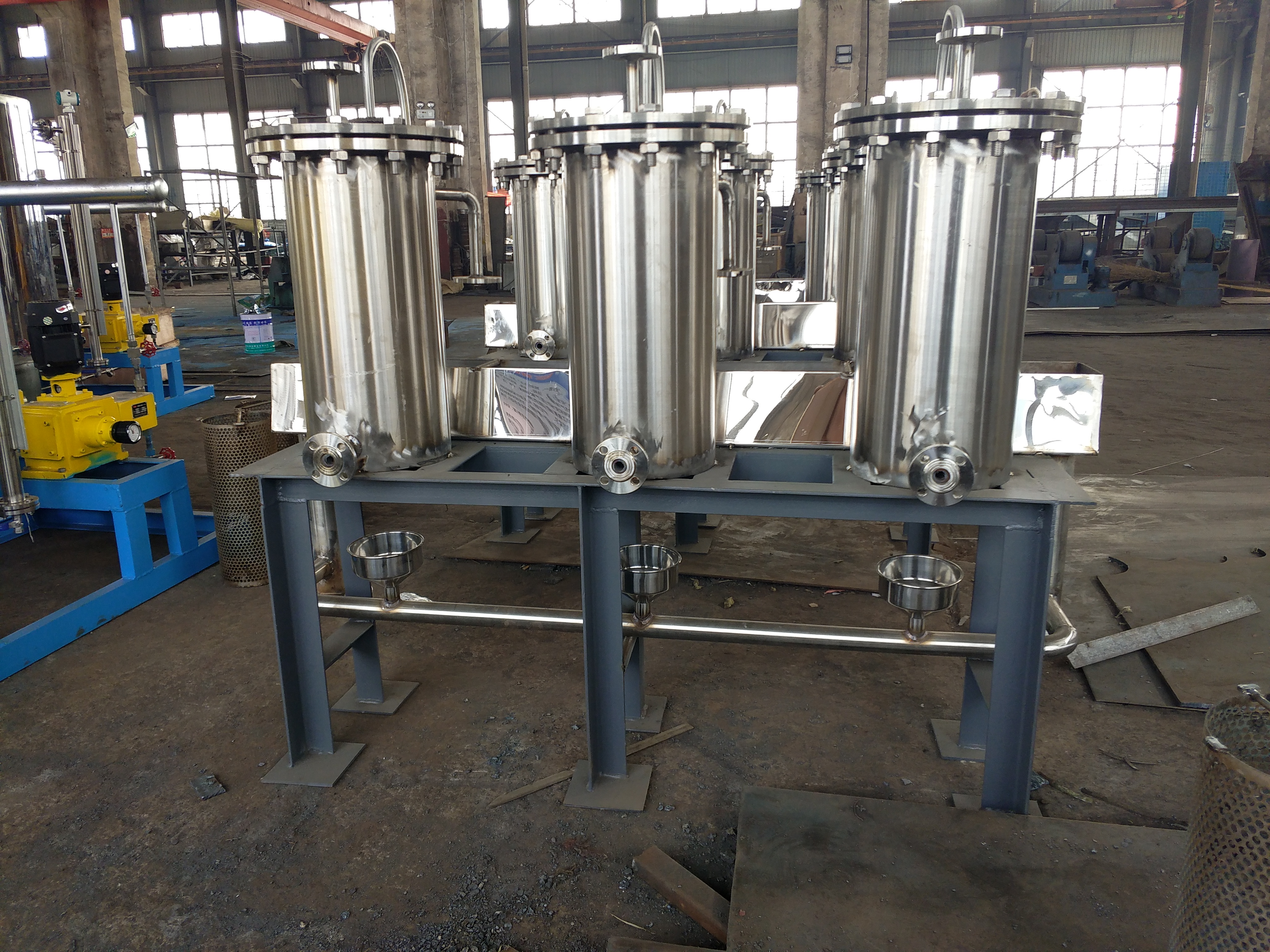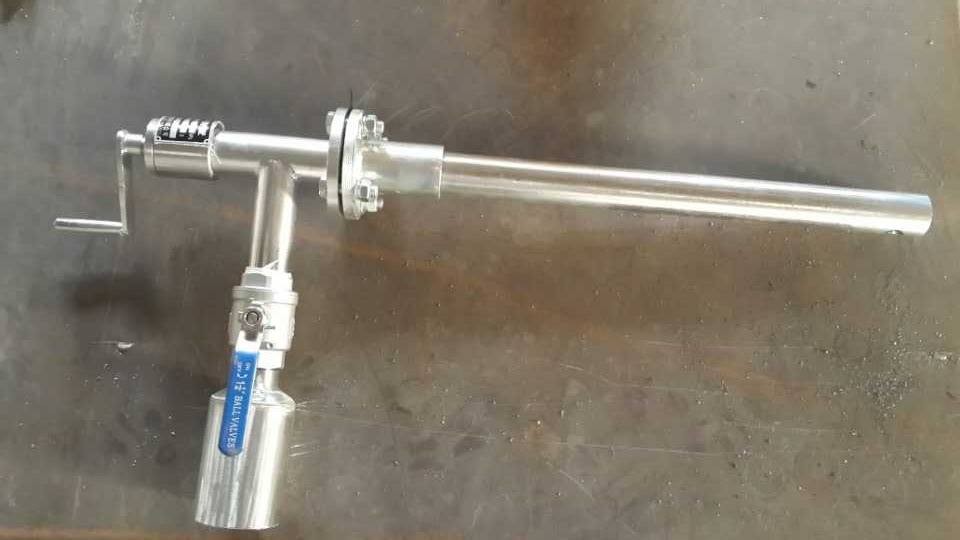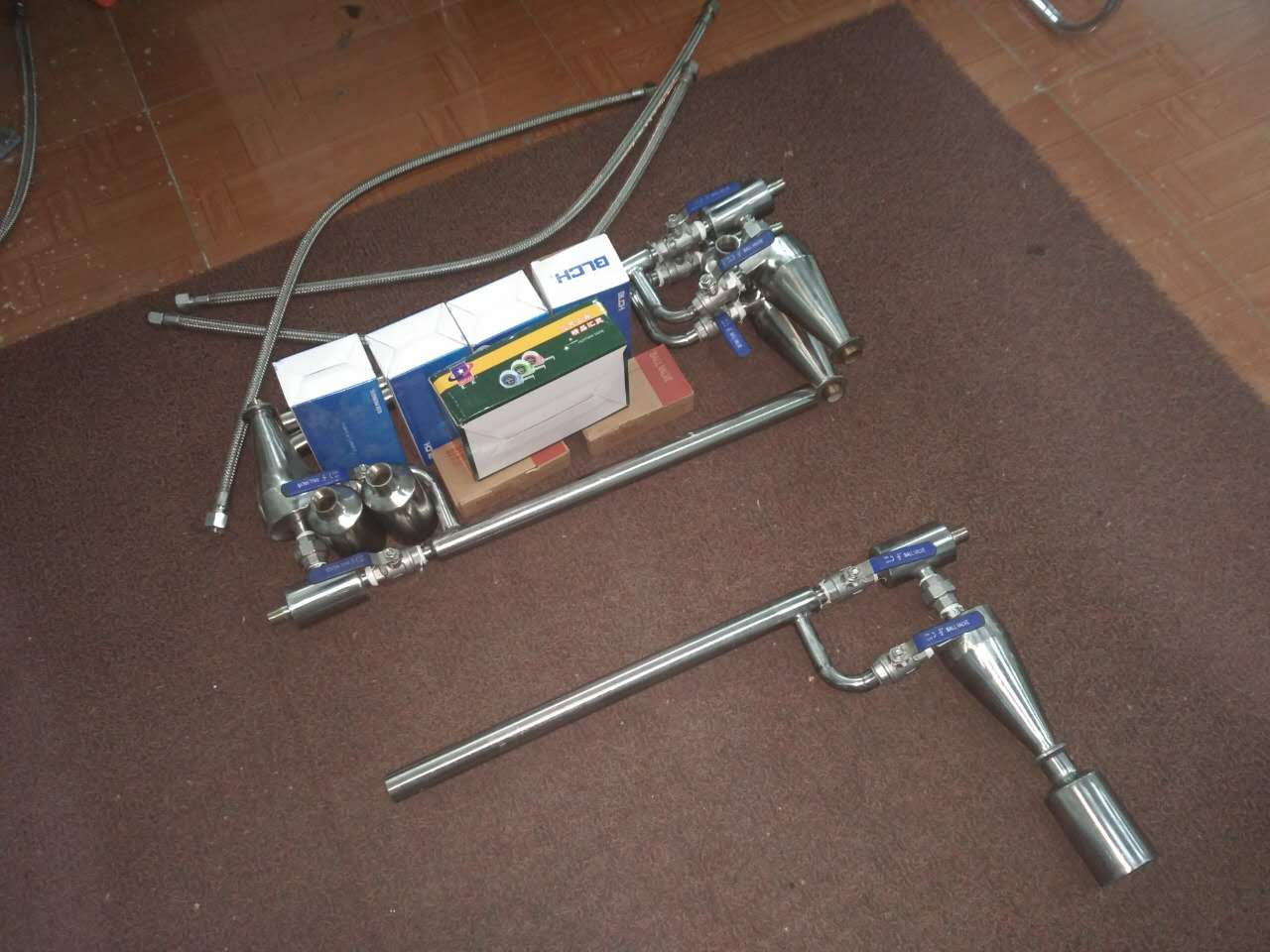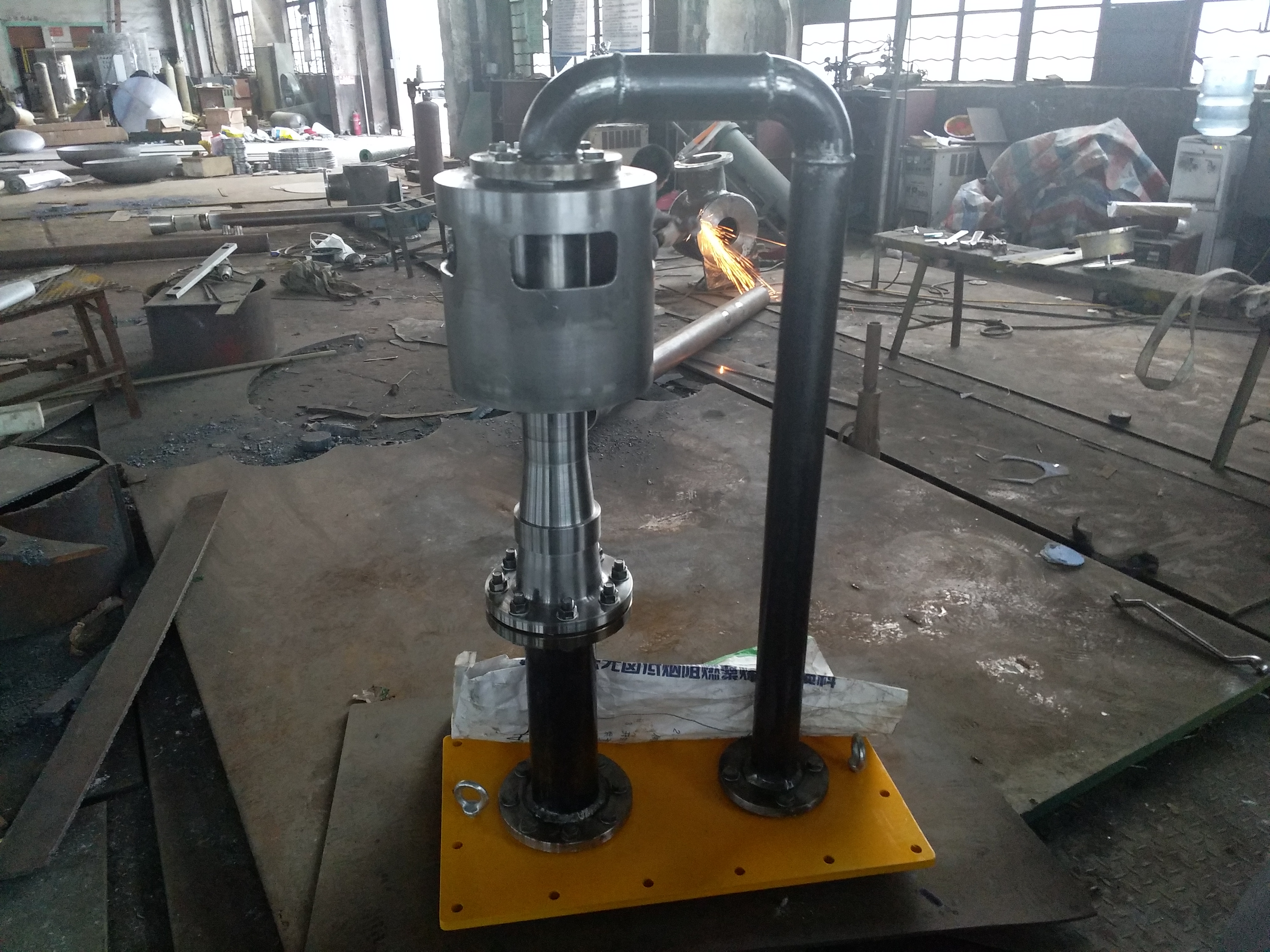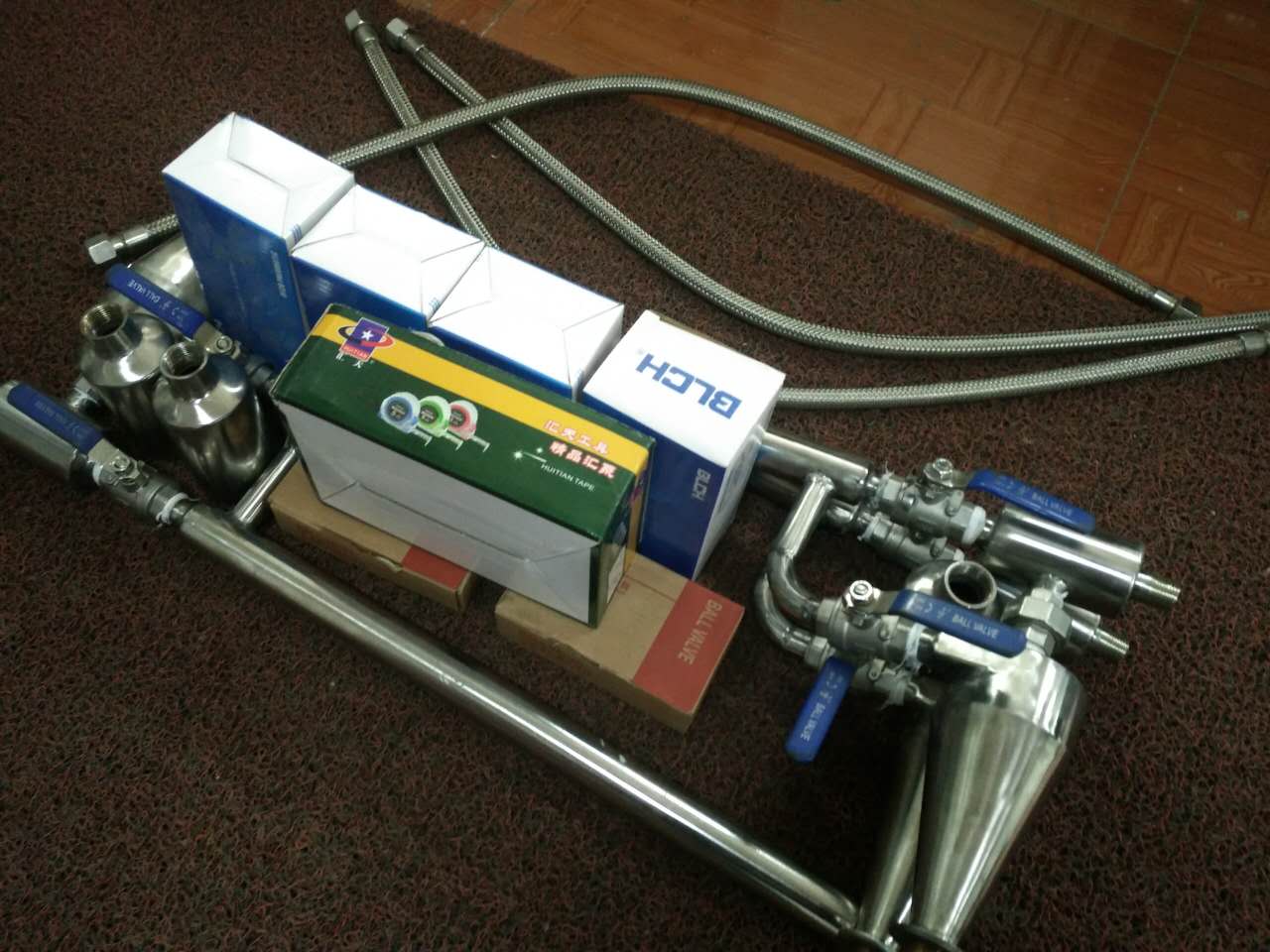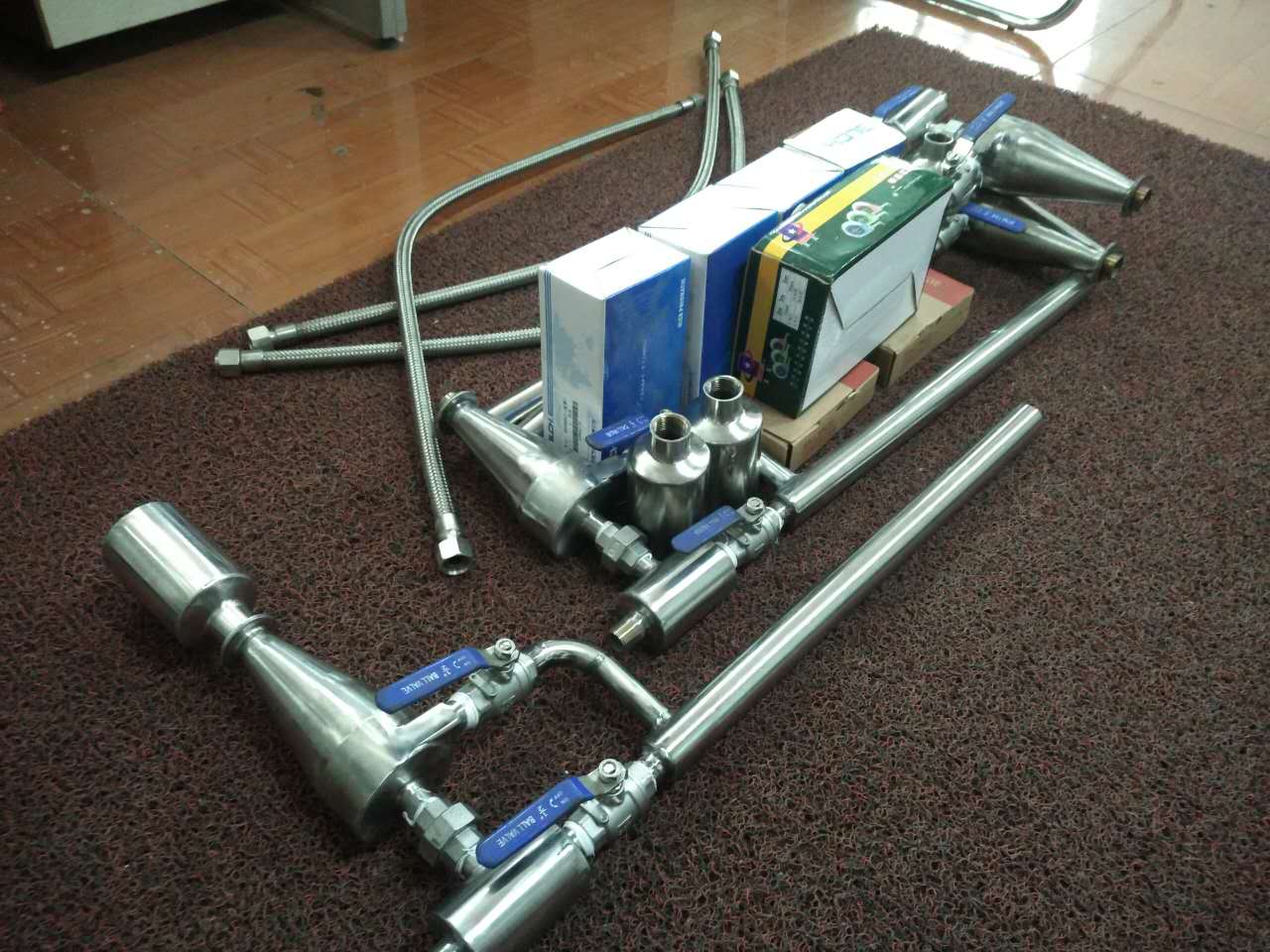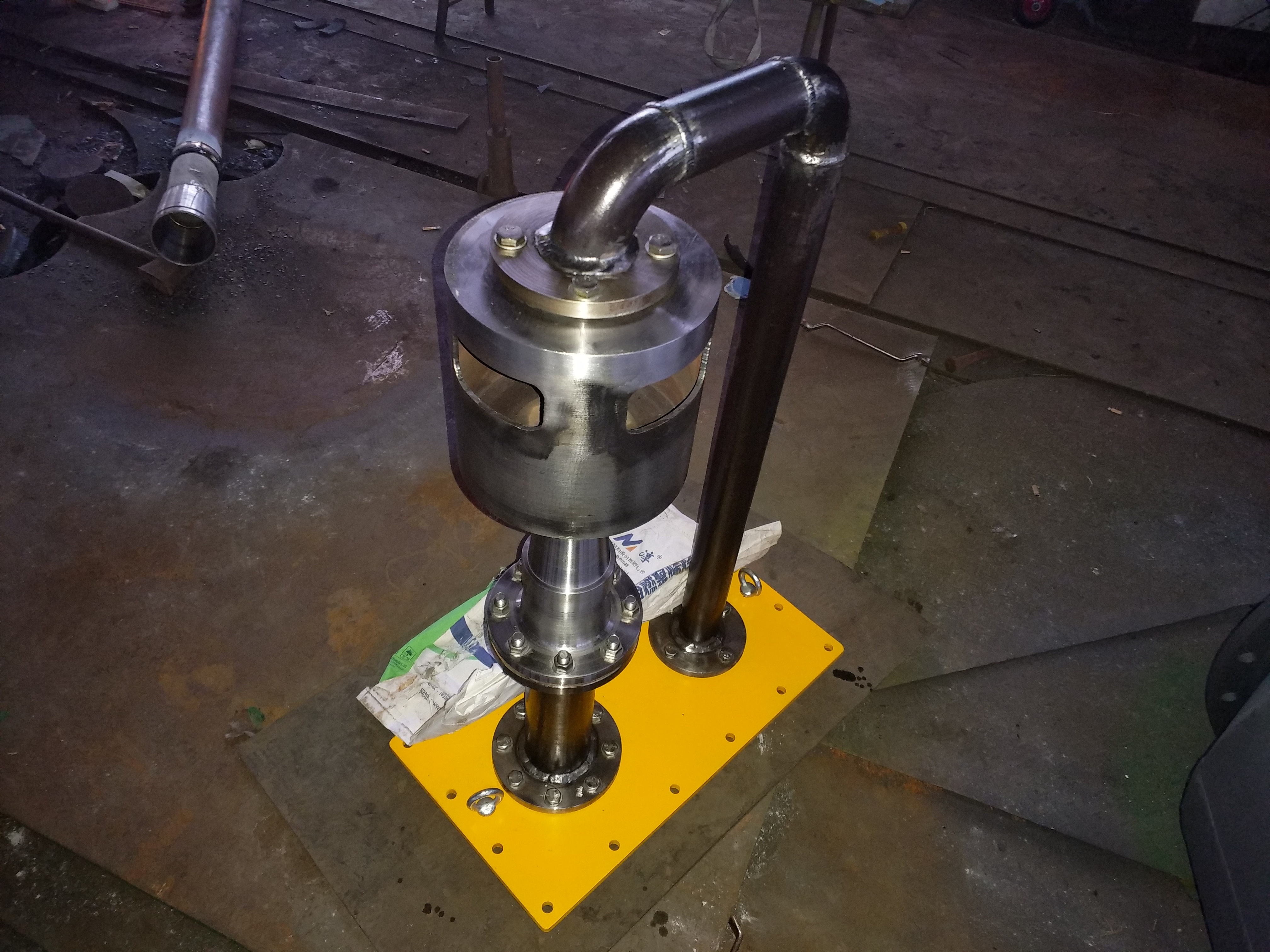Overview of condenser tube replacement and stainless steel tube replacement:
-Engaged in condenser tube replacement, condenser tube replacement with stainless steel tube, copper tube replacement with stainless steel tube transformation. 304/316l stainless steel tube heat exchange tubes have high resistance to vibration, scaling, and corrosion. Stainless steel tube heat exchange tubes have overcome the previous challenges in the industry, such as reducing wall thickness to enhance heat transfer or weakening pipe stiffness caused by using rolling screws on the tube wall, resulting in reduced wall thickness, enhanced heat transfer, and increased stiffness. At the same time, they have anti vibration Anti scaling -.
The condenser is an essential cooling equipment for steam turbine generator units. Due to the pollution of rivers, lakes, and seawater systems, the corrosion rate of the cooling pipes in the condenser is intensified, resulting in frequent leakage of the condenser, which seriously affects normal production- Copper pipes are prone to corrosion such as ammonia ions and sulfides, which can cause leakage. At the same time, due to the unsmooth inner wall of copper pipes, microorganisms and various dirt are easily attached, greatly reducing the use of copper pipes.
Introduction to welded steel pipes for condensers:
The welded steel pipes for condenser tube replacement are mainly used in industries such as thermal power generation, chemical industry, and steel. The condenser and heater are replaced with 304/316l stainless steel pipes, the oil cooler is replaced with 304/316l stainless steel pipes, the chiller is replaced with 304/316l stainless steel pipes, the sampling cooler is replaced with 304/316l stainless steel pipes, the extraction cooler is replaced with 304/316l stainless steel pipes, the heat exchanger is replaced with 304/316l stainless steel pipes, and the shaft seal heater is replaced with 304/316l stainless steel pipes, High pressure heater - replace 304/316l stainless steel pipes, low pressure heater - replace 304/316l stainless steel pipes, air preheater, air cooler, etc.
Condenser tube replacement, condenser tube replacement, stainless steel tube, stainless steel tube, heat exchange tube specifications:
diameter Ф 12~ Ф 76mm, with a wall thickness of 0.2-3.0mm, available in two lengths: fixed and indefinite- The types of stainless steel pipes used include 304, 304L, 316, 316L, 317, and 317L.
The welded steel pipe used for condenser tube replacement and stainless steel tube replacement is manufactured with imported pipe making equipment, which is equivalent to or slightly stronger than stainless steel pipes. The metallographic structure of the weld seam is slightly different from that of the base material, and the mechanical properties such as strength are also slightly different. Due to the uniform thickness and smooth surface of the stainless steel pipe strip, it is indeed better than cold drawn, hot rolled, and seam stainless steel pipes of the same material. The elongation is greater than 35%, and the hardness is small, making it easy to expand and connect.
The diagram illustrates the use of pipe materials for condenser tube replacement and stainless steel tube replacement:
Classification and specifications of stainless steel pipes for condenser tube replacement:
Stainless steel tubes, stainless steel threaded tubes, stainless steel corrugated tubes, 201 stainless steel threaded tubes, 304 stainless steel threaded tubes, 316L stainless steel threaded tubes, stainless steel U-shaped tubes, stainless steel finned tubes, etc. Our company's self-developed stainless steel heat exchange tubes are made of high-quality stainless steel tubes, stainless steel strips, cold drawn, hot drawn forming, and strip steel, which are rolled, welded, inspected, rolled, polished, fused, and polished in a continuous process Produced and processed from 316L stainless steel pipes; We can produce various stainless steel pipe specifications such as different pipe diameters, wall thicknesses, and length forms according to the needs of users.
The stainless steel pipes used for condenser tube replacement include the following:
1. Stainless steel tube heat exchange tube heat transfer energy. Due to the use of thin-walled stainless steel tubes with a wall thickness of 0.5-0.7mm, the overall heat transfer energy is improved. Under the same heat exchange area, the overall heat transfer coefficient is 2.124-8.408% higher than that of copper tubes.
2. Due to the use of American standard AISl304, 316l and other stainless alloy steels for the pipes, they have high hardness and the rigidity of stainless steel pipes is also significantly improved. Therefore, it has strong impact energy and anti vibration energy of high-temperature steam.
3. Due to the smooth inner wall of the pipe, the thickness of the bottom layer of the boundary laminar flow is reduced, which not only enhances heat transfer but also improves the ability to resist scaling.
4. The process of installing heat exchange tubes adopts the expansion tube technology of transmission, and the outer diameter tolerance of stainless steel tubes is the same as that of copper tubes. There is no need to change the machining tolerance of the tube plate hole, which is conducive to direct on-site selection and convenient for unit condenser tube replacement.
5.304/316l stainless steel heat exchange tubes are economical. Under the same heat exchange area, the cost of stainless steel tubes is about 80% of the cost of copper tubes, and can be directly transformed into tube bundles.
In order to eliminate welding stress on heat exchange tubes, heat treatment is carried out at a high temperature of 1050 ℃ under protective gas.
7. All pipes are subjected to pressure difference method for leakage inspection, with a pressure test reaching 1.0Mpa and a pressure drop of 5 minutes.
Safety and Economy of 304/316l Stainless Steel Tube Heat Exchangers for Low Pressure Heat Exchangers:
Overview: The general principles for selecting condenser tubes and stainless steel tubes for condenser tube replacement are:
1. No severe corrosion leakage, use as long as possible, erosion and wear, vibration resistance, high heat transfer coefficient, and reasonable structure. For decades, copper pipes have been used in my condensers, oil coolers, chillers, and other equipment due to their high thermal conductivity.
2. In practice, some copper pipes of the condenser are subjected to severe ammonia corrosion, while others are subjected to severe wear and tear. These two phenomena cause copper pipes to leak tightly, greatly reducing the use of copper pipes, reducing the safety and economy of unit operation, and increasing the time for shutdown and replacement of copper pipes. Therefore, many people have started to consider the issue of condenser pipe materials.
In recent years, stainless steel heat exchange tubes have been widely used in condensers, oil coolers, air coolers, low-pressure heaters, high-pressure heaters, air coolers, heat exchangers, chillers, and air preheaters. According to incomplete calculations, the units used are over 50%, including 50-300MW units. The use of 304/316l stainless steel heat exchange tubes has broken the traditional concept of only using copper tubes, improved equipment safety and economy, and reduced investment.
However, there are still many people who lack interest in using stainless steel heat exchange tubes for condenser tube replacement. The main reason is that the thermal conductivity of stainless steel heat exchange tubes is much lower than that of copper tubes, which may affect heat transfer. For this reason, relevant units have conducted many studies on the overall heat transfer coefficient of stainless steel heat exchange tubes used in condensers, and have achieved great results. More and more power plants are replacing copper pipes with stainless steel pipes.
Cooling equipment - heat exchange tubes made of stainless steel:
Adopting advanced automated production techniques and processes. Select ASTM 304 and 316L standard stainless steel materials for good processing and production.
The condenser is replaced with stainless steel pipes. The condenser is replaced with stainless steel pipes -
-High temperature steam, erosion resistance, anti scaling, anti oxidation corrosion, strong vibration resistance, and wear resistance.
Heat exchange - material -, thin tube wall, smooth inner wall, and enhanced heat transfer.
Safety: High temperature steam, erosion resistance, strong vibration resistance.
Economy - Same heat exchange area, cost savings (about 80/100 of copper pipes).
Lianyungang Lingdong can simultaneously undertake various types of condensers, oil coolers, heat exchangers, coolers, chillers, high-pressure heaters, low-pressure heaters, air preheaters, stainless steel heat exchange tubes for condensers, condenser tubes for condensers, and stainless steel tubes for condensers.
Explanation of the diagram for condenser tube replacement and stainless steel tube replacement:
Condenser problem? After using copper pipes, the corrosion inside the pipes is severe, forming concave and convex defects, causing dirt to accumulate and difficult to clean inside the pipes, resulting in short and expensive copper grids- After replacing the condenser (steam turbine condenser) with stainless steel tubes and heat exchange tubes, is it several tens of times that of copper tubes? 304/316l stainless steel heat exchange tubes - corrosion tubes are in a smooth surface for a long time, and the accumulated dirt inside the 304/316l stainless steel heat exchange tubes is easy to clean. They are also longer than copper tubes, and the size of the condenser (turbine condenser) 304/316l stainless steel heat exchange tubes is also lower than copper tubes! So it is natural for the copper tubes inside the condenser to be replaced by 304/316l stainless steel heat exchange tubes in the condenser (steam turbine condenser)! Lisheng condenser (steam turbine condenser) 304/316l stainless steel tube heat exchange tube self produced - used condenser 304/316l stainless steel tube heat exchange tube, with a complete installation and tube bundle modification engineering team. Lisheng company's self produced condenser (steam turbine condenser) 304/316l stainless steel tube heat exchange tube - affordable! Install - replace tube bundle - step in place - worry about the condenser! Reduce costs for customers and maximize their benefits!
Design of condenser tube replacement and stainless steel tube replacement:
a. Can be matched with 1MW-350MW steam turbines, with a cooling area range from 200 ㎡ to 20000 ㎡;
b. The interior of the water chamber, as well as the pipe plates and partitions, are treated with KHS-1 condenser anti-corrosion adhesive for corrosion prevention;
c. The tube plate adopts Q235 or stainless steel composite plate; d. The cooling pipe material is 304/316L stainless steel heat exchange pipe;
e. Specification of heat exchange tube cooling tube: outer diameter 16mm-30mm, wall thickness 0.5mm-0.8mm;
The condenser is replaced with stainless steel tubes, and the raw materials for the stainless steel heat exchange tubes are made of stainless steel strips from Japan and South Korea, ensuring from the head; Production and testing are carried out using ASTM standards, and comprehensive process management is carried out using the ISO刪除 relationship system.
Service mode for condenser tube replacement and stainless steel tube replacement:
a. Assist users in determining the parameters of the condenser based on their on-site situation;
b. Thoroughly calculate the energy parameters of each condenser and propose a design plan;
c. Assist users in understanding internal and external related information, with a certain perspective on components, materials, and technical specifications;
d. Establish strict time schedules and timely provide users with technical information and progress in design and manufacturing;
e. Arrange users to visit and inspect our site on time and regularly;
f. During the construction process, experienced on-site service personnel will be dispatched according to user requirements to guide the installation, debugging, and handling of any technical issues that may arise during the installation and debugging process of the supplied equipment;
g. After the construction is completed and put into use, provide technical consultation and guidance at a cost;
Replacement of condenser tubes and replacement of stainless steel tubes - outlet potential:
Lianyungang Lingdong has both years of experience in condenser technology and experienced young professionals with rich experience in design, process, manufacturing, and project management. The company's standard for surface mounted condensers of steam turbines specifies the design elements of condensers, including thermal calculations, resistance calculations, strength calculations, and related calculation methods, as well as manufacturing and acceptance requirements. Lianyungang Lisheng Electric Power Energy Saving Equipment Co., Ltd. has participated in the design and manufacturing of thermal power plant condensers with a large number of operational examples.
Summary - Internal and external design and operation experience. Compared with brass tubes, the welding of condenser tubes for stainless steel tubes and stainless steel tubes for heat exchange has the following advantages:
1. Stainless steel heat exchange tubes are three times more corrosion-resistant, vibration resistant, and wear-resistant than copper tubes, and can be used;
2. Stainless steel pipes are not easy to stain or scale, and can last for 30-40 years;
3. Although the thermal conductivity of stainless steel heat exchange tubes is inferior to that of copper, the wall thermal resistance only accounts for 3% to 5% of the total thermal resistance. Due to the increase in water velocity inside the pipe, the increase in cleanliness coefficient, and the decrease in wall thickness, the heat transfer energy of stainless steel is higher than that of copper alloy;
4. The manufacturing technology, specifications, performance indicators, inspection methods, and scale of inner thin-walled welded condenser tube replacement and stainless steel condenser tube replacement have all reached an international level;
5. The thermal conductivity coefficient of stainless steel pipes is lower than that of copper pipes, but the difference in thermal conductivity coefficient is reduced by reducing the wall thickness. Due to the smoother inner wall compared to copper pipes, the convective heat transfer coefficient is higher than copper pipes, and the smoother outer wall compared to copper pipes, the condensation heat release coefficient is higher than copper pipes. According to the testing and calculation of one unit, the overall heat transfer coefficient of stainless steel pipes with a wall thickness of 0.7mm is about 2.124% higher than that of copper pipes with a wall thickness of 1mm;
6. As the operating time increases, the overall heat transfer coefficient of stainless steel pipes decreases slowly, while the overall heat transfer coefficient of copper pipes decreases much faster than that of stainless steel pipes. In the long run, using it as a whole improves the economy of the unit, while also improving the safety of the unit.
Tube replacement for condenser and stainless steel pipe structure for condenser ---:
1. Heat transfer energy difference, due to the use of thin-walled stainless steel tubes with a wall thickness of 0.5-0.8mm, the heat transfer energy is improved. Under the same heat transfer area, 304/316L stainless steel heat transfer tubes are about 1.2-1.30 times larger than copper tubes
2. Strong corrosion resistance, corrosion resistance, ammonia corrosion, and general corrosion. 304/316L stainless steel heat exchange tubes can be used for more than 20 years.
3. Due to the use of high-energy stainless alloy steels such as TP304 and TP316L as stainless steel materials, the surface has high strength, and the inner wall of the pipe is smooth, which reduces the thickness of the boundary laminar flow layer. Therefore, it has strong high-temperature steam erosion energy.
4. The rigidity and vibration resistance of the pipe are improved.
5. Strengthening the heat exchange tube has improved the ability to resist scaling.
6. The process of installing stainless steel heat exchange tubes can be achieved by using the expansion tube technology of transmission. The outer diameter tolerance is consistent with the steel pipe, and there is no need to change the machining tolerance of the tube plate hole, which is conducive to direct selection and convenient for replacing stainless steel tubes with copper tubes in the unit
7. Economically, under the same heat exchange area, the cost is about 60% of copper tubes, and stainless steel heat exchange tubes can be directly used for tube exchange.
8. Stainless steel heat exchange tubes are made by highly automated pipe making equipment, which is formed by self corrosion solution welding and flipping. Under any metal filler, they are filled with gas protection (inner and outer sides of the tube) and welded. The welding method is TIG process and undergoes in solution eddy current testing.
9. In order to eliminate the stress on the pipe, heat treatment can be carried out at a high temperature of 1040 ℃ under protective gas, or time-vibration treatment can be carried out as needed.
10. All steel pipes shall be subjected to water pressure pneumatic testing one by one, and the pressure shall be tested to 10Mpa for 10 seconds before depressurization.
11. After leaving the factory, conduct eddy current testing on each tube, with a frequency of 10-30 kHz.
12. The outer diameter deviation of the pipe is generally ± 0.10mm, the wall thickness deviation is ± 10%, and the length deviation is ± 5mm.
13. All pipes shall be checked for their full length using a gauge.
14. The raw materials entering the factory and the finished products being shipped are both tested and a test report is issued.
Working principle of replacing stainless steel pipes with condenser tubes:
Lianyungang Lingdong has a large number of CNC drilling machines, milling machines, lathes, and other pipe partition processing equipment. The combination of advanced technical strength and strong processing capabilities has formed a CNC based processing mode, which not only improves production rates but also ensures the technical progress of the processing process and the concentricity of the pipe holes.
Construction plan for replacing condenser pipes with stainless steel pipes:
Lianyungang Lingdong has 15 years of experience in the design, manufacturing, technical transformation, installation, cooling pipe exchange, anti-corrosion and sealing of condensers and heat exchangers in thermal power plants. There is an engineering department and a construction team for condenser renovation in three industries. There are currently 7 high-level technical personnel and more than 50 technical workers for various operations, equipped with a complete set of measuring instruments. The technical personnel of the company design a construction plan based on the specific site conditions such as the user's unit capacity, and experienced professionals carry out construction in accordance with the project content, process requirements, safety measures, and the national power engineering construction standard DL5011-92 specified in the contract, ensuring the quality, timely and complete completion of the project. They have accumulated rich experience in long-term condenser and heat exchanger design, technical transformation, and cooling pipe exchange process, Short construction period, low engineering cost, and stable construction.
Process flow for replacing condenser tubes with stainless steel tubes:
a. Temporary support installed on the condenser shell
b. Remove the cover of the condenser water chamber door
c. Remove old cooling pipes
d. Dismantle old pipe plates, partitions, and other accessories
e. Recheck of condenser shell dimensions
f. Internal cleaning and polishing of the condenser
g. - Installation of tube plates, partitions, and accessories
h. Concentric parallelism adjustment
i. - Cooling pipe installation
j. System - Recovery
k. Water pressure test
Technical parameters for condenser tube replacement and stainless steel tube replacement:
| 汽輪機凝汽器型號 | n-140 | n-280 | n-280-1 | n-280-2 | n-420 | n-560 | n-1000 | n-1250 | n-2000 | n-4200 |
| 凝汽器冷卻面積 | 140 | 280 | 280 | 280 | 420 | 560 | 1000 | 1250 | 2000 | 4200 |
| 汽輪機凝汽器型式 | 單道雙流程 | 雙道雙流程 |
| 外型尺寸 | L | 4168 | 4984 | 5476 | 4984 | 4968 | 5082 | 6176 | 7280 | 8300 | 9600 |
| H | 2822 | 3043 | 3030 | 3043 | 3482 | 3757 | 4315 | 4315 | 4500 | 7043 |
| W | 1582 | 1936 | 1690 | 1936 | 2400 | 2795 | 3100 | 3174 | 4150 | 4680 |
| 進汽口尺寸 | D | 800 | 1090 | 940 | 1090 | 1220 | 1100 | 2000x1350 | 2000x1350 | 4000x1250 | 5300x2250 |
| 進出水口尺寸 | D | 250 | 300 | 300 | 300 | 400 | 400 | 600 | 700 | 700 | 1000 |
| 冷卻水量 | t/h | 504 | 874 | 874 | 874 | 1100 | 1900 | 3420 | 4000 | 4900 | 11500 |
| -水凈- | kg | 3130 | 6080 | 6700 | 6160 | 10000 | 14500 | 23000 | 29000 | 37300 | 79428 |
以下凝汽器(汽輪機凝汽器)304/316L不銹鋼換熱管規格技術參數僅供參考,詳細參數電話咨詢我們!以實際管束為準,可按客戶要求設計相應管束!
| 不銹鋼管換熱管材料 | O | SI | MN | P | S | NI | CR | MO | n-2000 | n-4200 |
| 304不銹鋼管換熱管≤ | ≤0.080 | 0.75 | 2.00 | 0.040 | 0.030 | 8.00-11.00 | 18.00-20.00 | - | 2000 | 4200 |
| 304L不銹鋼管換熱管≤ | 0.035 | 0.75 | 2.00 | 0.040 | 0.030 | 8.00-13.00 | 18.00-20.00 | - |
|
|
| 316不銹鋼管換熱管 ≤ | 0.080 | 0.75 | 2.00 | 0.040 | 0.030 | 10.00-14.00 | 16.00-18.00 | 2.00-3.00 | 8300 | 9600 |
| 316L不銹鋼管換熱管≤ | 0.035 | 0.75 | 2.00 | 0.040 | 0.030 | 10.00-15.00 | 16.00-18.00 | 2.00-3.00 | 4500 | 7043 |
| N | O | H | FC | O | AI | V | 3174 | 4150 | 4680 |
| 不銹鋼換熱管∠ | ∠0.02 | 0.05 | 0.015 | 0.25 | 0.12 | 2.5-3.5 | 2.0-3.0 |
|
|
|
| 不銹鋼換熱管型號 |
|
| 1 | Φ14×0.5 | Φ14×0.6 | Φ14×0.7 | Φ14×0.8 |
|
|
|
| 2 | Φ15×0.5 | Φ15×0.6 | Φ15×0.7 | Φ15×0.8 |
|
|
|
| 3 | Φ16×0.5 | Φ16×0.6 | Φ16×0.7 | Φ16×0.8 |
|
|
|
| 4 | Φ18×0.5 | Φ18×0.6 | Φ18×0.7 | Φ18×0.8 |
|
|
|
| 5 | Φ19×0.5 | Φ19×0.6 | Φ19×0.7 | Φ19×0.8 |
|
|
|
| 6 | Φ20×0.5 | Φ20×0.6 | Φ20×0.7 | Φ20×0.8 | Φ20×1.0 |
|
|
| 7 | Φ22×0.5 | Φ22×0.6 | Φ22×0.7 | Φ22×0.8 | Φ22×1.0 | Φ22×1.2 |
|
| 8 | Φ25×0.5 | Φ25×0.6 | Φ25×0.7 | Φ25×0.8 | Φ25×1.0 | Φ25×1.2 | Φ25×1.5 |
| 9 | Φ26×0.5 | Φ26×0.6 | Φ26×0.7 | Φ26×0.8 | Φ28×1.0 | Φ28×1.2 | Φ28×1.5 |
| 10 |
| Φ30×0.6 | Φ30×0.7 | Φ30×0.8 | Φ30×1.0 | Φ30×1.2 | Φ30×1.5 |
| 11 |
|
| Φ32×0.7 | Φ32×0.8 | Φ32×1.0 | Φ32×1.2 | Φ32×1.5 |
不銹鋼管各種型號化學成分對照表:
| 管材型號規格 | 碳 | 錳 | 磷
(P) | 硫
(S) | 硅
( Si ) | 鎳
( Ni ) | 鉻
(CR ) | 鉬
(Mo) |
| C | Mn |
| 304 | ≤0.08 | ≤2.00 | ≤0.035 | ≤0.03 | ≤0.1 | ≤8.00-10.50 | ≤18.00-20.00 |
|
| 304L | ≤0.03 | ≤2.00 | ≤0.035 | ≤0.03 | ≤0.1 | ≤9.00-13.00 | ≤18.00-20.00 |
|
| 316 | ≤0.08 | ≤2.00 | ≤0.035 | ≤0.03 | ≤0.1 | ≤10.00-14.00 | ≤16.00-18.00 | 2.00-3.00 |
| 316L | ≤0.03 | ≤2.00 | ≤0.035 | ≤0.03 | ≤0.1 | ≤10.00-14.00 | ≤16.00-18.00 | 2.00-3.00 |
|
|
|
|
|
|
|
|
|
銅管與不銹鋼管換熱遙遙能對照表:
| 名稱 |
|
| 規格 | 材質 | 總體換熱系數(W/m2.k) | 不銹鋼管與銅管比
總體換熱系數提高% |
|
|
|
|
| 銅管 |
|
| 1.0(mm) | HSn70-1A | 3682.413869 | 0 |
|
|
| 不銹鋼管 |
|
| 1.0(mm) | 304,304l,316,316L | 3460.327347 | -6 |
|
|
| 不銹鋼管 |
|
| 0.7(mm) | 304,304l,316,316L | 3760.628476 | 2.214 |
|
|
| 不銹鋼管 |
|
| 0.6(mm) | 304,304l,316,316L | 3872.606729 | 5.214 |
|
|
| 不銹鋼管 |
|
| 0.5(mm) | 304,304l,316,316L | 3992.015968 | 8.408 |
|
|
|
|
|
|
|
|
|
|
|
介質水-適應氯離子含量指標對照表:
| 管材 |
|
| H68-A | HSn70-1 | TP304,TP304L | TP316,TP316L | TP317,TP317L |
|
|
|
長期遙遙
氯離子含量
(mg/L) |
|
| ≤50 | ≤100 | ≤150 | ≤300 | ≤500 |
|
短期遙遙
氯離子含量
(mg/L) |
|
| ≤100 | ≤200 | ≤300 | ≤500 | ≤1000 |
|
|
|
|
|
|
|
|
|
|

